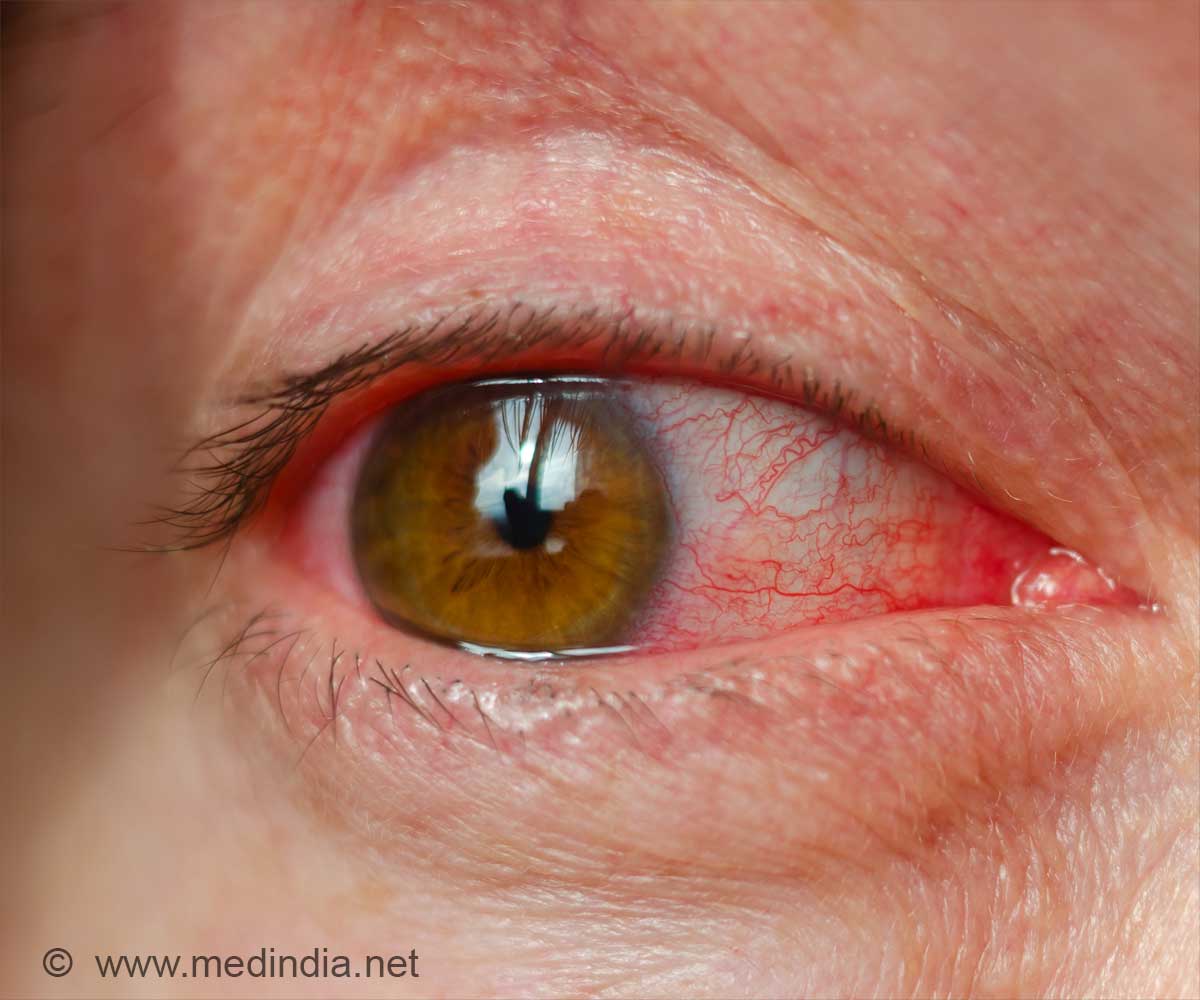“Swimmer’s Eye” can ruin your pool time, but it’s preventable! Goggles, hygiene, and care are all you need to keep your eyes smiling.

- Swimmer’s eyes are common among frequent swimmers, characterized by redness and irritation
- Chlorine in water combines with sweat and urine to form chloramine
- Chloramine is a potential irritant to the eyes, skin and lungs
Swimming is a recreational activity practiced by many worldwide. It offers many benefits like better heart health, improved muscle strength and stress relief. Swimmers frequently experience a condition known as swimmer’s eyes characterized by redness, irritation and discomfort (1✔ ✔Trusted Source
Why do you get red, irritated eyes after swimming?
).
It is due to chlorinated water and other factors associated with swimming pools. This is harmless but if not treated can lead to discomfort or even infections that can discourage swimmers from continuing swimming.
Advertisement
Effect of Chlorine on Eyes
Chlorine is used for pool sanitation but can have unexpected side effects on the eyes like redness, sensitivity to light and stinging pain.
Chlorine does not kill all harmful pathogens; some resistant pathogens can aggravate irritation or lead to infection (2✔ ✔Trusted Source
What You Should Know About Swimming and Your Eyes
Advertisement
Why do Eyes get Irritated and Red After Swimming?
The causes for swimmer’s eyes are
Chemical Conjuctivitis
: Chlorine used to clean swimming pools combines with sweat and urine to form chloramines. Chloramines are irritants that cause redness, itching and burning sensation in the eyes. It can cause skin and respiratory infections.
Disruption of Tear Film
: The natural tear film of eyes is washed away if they are exposed to water for a longer duration leading to dryness and irritation
Bacterial Contamination
: Chlorine is added to water to kill harmful microorganisms but some bacteria and viruses like adenovirus can survive chlorinated water and cause infections.
Swimmer’s eye is caused due to the combined effect of all the reasons mentioned earlier.
Advertisement
Remedies for Swimmer’s Eyes
- After swimming rinse your eyes with fresh water or saline solutions to remove chlorine and irritants.
- Use preservative-free artificial tears to soothe dryness and restore moisture. Avoid redness reducing drops, it can cause rebound irritation with prolonged use.
- Reinsert contact lenses 20-30 minutes after swimming as it can prevent lens adhesion and reduce the risk of bacterial contamination.
How to Prevent Redness in the Eye after Swimming?
Swimming Goggles
: Wear high-quality goggles with watertight seal and UV protection during outdoor swimming. Ensure proper fit to avoid water seepage.
Avoid Contact Lenses
: Contact lenses can trap irritants and bacteria in them, increasing the risk of infection. If lenses are a must, then use daily disposable lenses and wear protective goggles.
Shower Before Entering the Pool
: Showering can wash off sweat, oils and debris and reduce water chloramine formation.
Practice Proper Pool Hygiene
: swimmers must follow hygiene protocols like avoid urinating water and taking regular breaks to reduce sweat accumulation.
Is it Safe to Swim with Contact Lenses?
The US Food and Drug Administration and eye care professionals strongly advise against swimming with contact lenses because of
- Increased risk of eye infections
- Corneal abrasion or injury
- Rare but severe complications like retinal detachment
Swimmer’s eye is a common but preventable condition. By following precautionary protocols swimmers can enjoy the benefits of swimming without compromising eye health. It is better to consult an ophthalmologist or eye doctor if symptoms persist for a longer duration.
References:
- Why do you get red, irritated eyes after swimming? – (https://www.centreforsight.net/blog/why-do-you-get-red-irritated-eyes-after-swimming/)
- What You Should Know About Swimming and Your Eyes – (https://www.aao.org/eye-health/tips-prevention/swimming-contacts-your-eyes)
Source-Medindia



